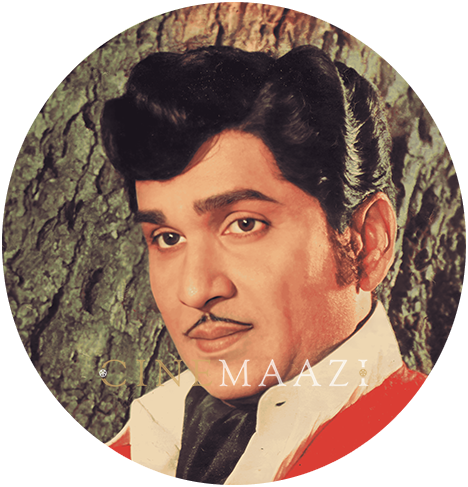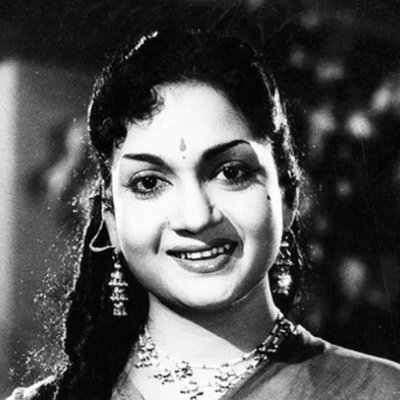Akkineni Nageswara Rao

Subscribe to read full article
This section is for paid subscribers only. Our subscription is only $37/- for one full year.
You get unlimited access to all paid section and features on the website with this subscription.
Not ready for a full subscription?
You can access this article for $2 , and have it saved to your account for one year.
- Born: 20 September, 1923 (Ramapuram, Madras Presidency)
- Died: 22 January, 2014 (Hyderabad, Andhra Pradesh)
- Primary Cinema: Telugu
- Parents: Akkineni Venkatratnam, Akkineni Punnamma
- Spouse: Annapurna
- Children: Venkat Akkineni , Nagarjuna , Saroja, Sathyavathi, Naga Susheela
- Grand Children: Naga Chaitanya, Akhil Akkineni
One of the most influential stars in Telugu cinema history, Akkineni Nageshwara Rao not only delivered some of its biggest hits but also played a pivotal role in shifting Telugu cinema's base from Chennai to Hyderabad. Popularly called ANR, he became a star from the 1940s onwards, mastering the genres of fantasy, historicals and later melodramas. Widely regarded as one of the greatest Devdases of the screen, he also garnered particular renown for his portrayal of historical characters.
Born the youngest of five brothers on 20 September, 1923 in Ramapuram to Akkineni Venkatratnam and Akkineni Punnamma, he received only a basic primary education as the family’s financial situation did not allow for more. Though his family were farmers, he started participating in theatre from a young age. At the age of 12 he was playing the lead female character in Harishchandra. Also performing in renowned plays like Kanakatara, Vipranarayana and Telugu Talli, a chance in films was not far away. He made his film debut in a supporting role in Dharmapatni (1941). His fame also spread due to his performances for the Excelsior Dramatic Association in Gudivada. It is said Ghantasala Balaramaiah discovered him at Vijayawada railway station. Though he had mostly played female characters on stage, he played Rama in Seeta Rama Jananam (1944) which meant a difficult learning curve for him. But he excelled in this role and there was no looking back.
It is a well-known fact that he was a rationalist and atheist in real life, yet played mostly mythological characters in his career. Known for a humble, almost student-like approach to acting, he never let his personal ideology interfere with his performances. He was known for playing Krishna, Vishnu, Rama as well as figures like Balaraju (Balaraju, 1948), Vikrama (Keelu Gurram, 1949), Thondaradippodi Alvar (Vipra Narayana, 1954), Tenali Rama (Tenali Ramakrishna, 1956), Jayadeva (Bhakta Jayadeva, 1961), Amarashilpi Jakanachari (Amara Shilpi Jakkana, 1961), Tukaram (Bhakta Tukaram, 1971), and others. His pairing with Bhanumati was phenomenally successful following Laila Majnu (1949). This led to his roles in several successful romantic dramas, the most prominent of which was Devadasu (1953). He is often hailed as the best Devdas among all languages. Other prominent romantic roles were in Anarkali (1955) and Prema Nagar (1971). He co-starred with N T Ramarao in the blockbuster Samsaram (1950) which established his credentials as a dramatic actor. He was the top male star in the industry along with NTR and starred in as many as 14 films with him. Among them Missamma (1955), Maya Bazar (1957), Gundamma Katha (1962), Shri Krishnarjuna Yuddham (1963), Chanakya Chandra Gupta (1977) and Sathyam Shivam (1981) deserve special mention. His versatility and dramatic flair led his fans to name him Natasamrat. Other notable films were Bratuku Teruvu (1953), Donga Ramudu (1955), Dr. Chakravarthi (1964), Ilarikam (1959), Sudigundalu (1968), Maro Prapancham (1970), Dasara Bullodu (1971), Premabhishekam (1981), and Meghasandesam (1982) among others. He maintained his box office pull well into his later years as evidenced by the success of Sitaramayyagari Manavaralu in 1991. Appearing in fewer roles post 1990s, his last film was Manam (2014).
He received seven Nandi Awards and five Filmfare Awards among a host of other honours. These included the Raghupathi Venkaiah Award (1989), NTR National Award (1996), the Padma Shri (1968), Padma Bhushan (1988) and Padma Vibhushan (2011). The country's highest film award, the Dadasaheb Phalke award was conferred upon him in 1991.
Under his aegis Annapurna Pictures was set up in 1957, which provided the platform for Adurthi Subba Rao and K Vishwanath to make their films. The studio was built in Hyderabad, unlike in Madras which was the premiere centre of filmmaking in South India. Towards the dawn of filmmaking in the southern states most Malayalam, Telugu and Kannada films were produced in Madras due to lack of filmmaking facilities in their home states. This often presented logistical and sometimes formal problems for these films, as the industry in Madras would have its own codified practices and norms. By 1976, ANR's Annapurna Pictures had established itself as a full-grown studio in Hyderabad, thus giving Telugu cinema a base in its home state. This was the catalyst for several other studios to spring up and turn Hyderabad into the filmmaking hub it is today.
He married Annapurna in 1949, after whom Annapurna Studios and Akkineni Annapurna Educational Trust are named. The couple had five children, of whom Nagarjuna became a superstar in Telugu cinema. His son Venkat Rathnam is also a film producer.
He undertook several philanthropic projects through the Akkineni Janmabhoomi Trust and Akkineni International Foundation. Several scholarships were created by him in GITAM University and he was the chief donor of the Gudivada College, later renamed after him as Akkineni Nageshwara Rao College. Unlike his contemporary NTR, he never joined politics. He was known for his humble attitude and austere, almost miserly lifestyle.
In 2013 he was diagnosed with stomach cancer. After a year-long struggle with the disease he passed away on 22 January, 2014. He was cremated in his beloved Annapurna Studios with full state honours.
-
Filmography (16)
SortRole
-
Manam 2014
-
Kalimi Lemulu 1962
-
Kanna Kuturu 1960
-
Vadina 1955
-
Niru Pedalu 1954
-
Parivartana 1954
-
Annadata 1954
-
Paradesi 1953
-
Vayari bhama 1953
-
Prema 1952
-
Soudamini 1951
-









.jpg)



